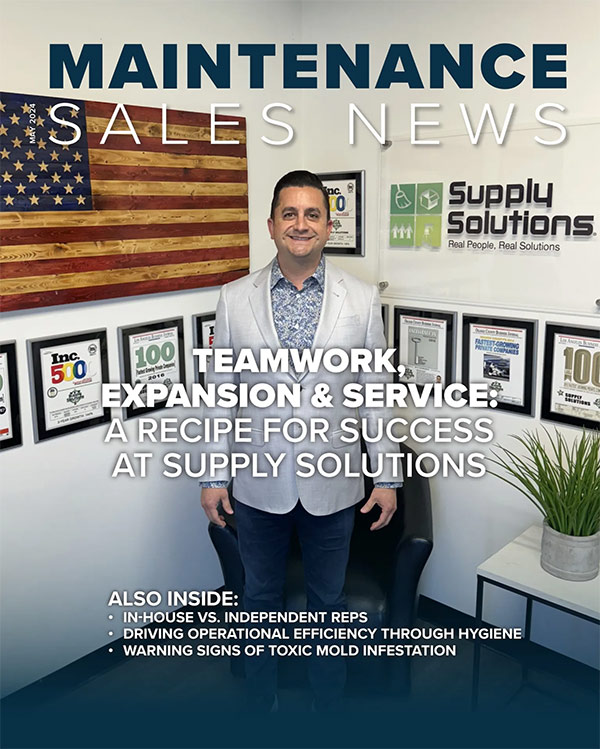In-House Vs. Independent Reps – Which Sales Team Can Help You Sell Even More?
By Jim Pancero, CSP, CPAE, Hall of Fame Speaker & Thought Leader
What’s the best sales team to help you sell even more? In the past “business-to-business” companies usually only had two alternatives to maintaining a sales team… “Employee Reps” or “Independent Reps.”
Employee Reps are normally full-time employees of your company only selling the product (or service) lines you carry. Most companies also provide their Employee Reps with medical coverage, retirement benefits as well as covering their business expenses. Some provide a company vehicle or cover a percentage of their car lease.
Independent Reps are, as their name implies, independent. They are not employees of your company and are treated as independent vendors for tax purposes. Traditionally, their only compensation is a percentage of the sales they directly generate. Independent Reps cover their own expenses, employee benefits and travel costs. They also sell multiple product lines representing several companies in an industry or to a market segment.
Which sales model will work best for you? In the past, the differences between Employee vs. Independent Reps were defined by two variables… how much revenue could be generated and what kind of technical or industry expertise was needed. Several companies today still utilize both types of salespeople. They use their own Employee Reps to cover local markets, usually near their manufacturing or distribution facilities, where sales volumes (and opportunities) are significant. They then utilize Independent Reps to cover areas with lower sales expectations, wider geography or to sell to specific industries.
The general rule has been the lower the sales expected from a geographic territory (or specific industry), the more likely you’d cover that market with an Independent Rep. Since Independent Reps represent multiple company product (or service) lines, they can profitably cover smaller markets at a lower total cost to you (due to representing multiple companies) than it would cost you staffing a full-time Employee Rep in the market or area.
Things are more complex today with a wider range of alternatives to staff a sales force. It’s no longer a choice of Employee vs. Independent but instead has become a continuum. On one end you have someone paid a straight salary with no other compensation except (usually) annual raises. At the other end of the spectrum are 100 percent commissioned reps paid a defined percentage commission on what they sell. Most fall somewhere in the middle — paying some type of salary or flat monthly fee, some contribution to sales expenses, commissions, and sales bonuses.
Market consolidation is the latest major evolution in Independent Reps. Most independent reps used to be just one or two people selling out of their homes covering their territories. Today, there is a much wider spectrum of Independent Rep options. There are still one-person repping firms, but they’ve now been joined by much larger regional independent repping companies. Employing 40 or more sales reps, they cover a defined multi-state area with their own support and management leadership. The only real difference between these large Independent Rep companies and a regional distribution company is the independents don’t actually handle or deliver your products.
Today you have a full range of variations or combinations of sales compensation structures that can minimize your cost of sales while still providing the technical, product and industry expertise you need to maximize your revenues. The three most important questions are now: 1). What balance of employee-to-independent attention do you need in a market or industry? 2). How much revenue do you want to generate in a specific market or industry? And, 3). What are you willing to pay for those efforts?
In today’s competitive job market, very few salespeople are on a 100 percent salary (plus benefits) compensation plan due to the inability to attract (and keep) long-term qualified reps with enough initiative, skill, and market awareness to be successful selling your products or services.
Consider using the “Kinda Independent Rep” model with your most senior, long-term sales reps as a “Soft landing” path to retirement. Instead of your most senior reps just announcing they’re retiring, you instead offer to let them hold onto a few of their largest (or easiest to maintain) accounts. They receive no benefits but do earn a commission on anything sold to their selected accounts. Your company benefits by keeping important customers stable and buying from you while your senior reps can work fewer hours while still generating some income.
Companies are now demanding more connection and participation from their Independent Reps. It used to be your Independent Reps were so independent they wouldn’t even attend your technical training or sales meetings. But that attitude is changing now due to the increased complexities and competitiveness of most markets. The attitude has evolved to affirming the Independent Rep’s independence while still requiring them to be more closely aligned and involved with your company, management, and sales meetings.
What will work best for you? There is no one simple answer today. The only real question is, what blend of sales reps will help your team sell even more?
About Jim Pancero, Dallas TX – Jim has been a successful sales and sales leadership speaker, trainer, and consultant for over 40 years, helping distribution and equipment manufacturers increase their competitive advantage as well as strengthen their sales leadership skills. Learn more of Jim’s ideas at https://pancero.com or by checking out his sales & sales leadership videos posted on YouTube – https://www.youtube.com/JimPancero.





